
Dec. 11, 2023
Prasanna receives UPE Academic Achievement Award
Shivika Prasanna, a Ph.D. student in computer science, has received a prestigious Academic Achievement Award from Upsilon Pi Epsilon (UPE).
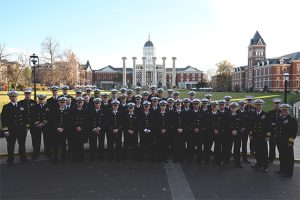
Dec. 11, 2023
NROTC celebrates Change of Command, retirement ceremony
The Naval Reserve Officers Training Corps at the University of Missouri celebrated a Change of Command and retirement ceremony on Friday. Captain David W. Dry, who has served as commander of the Naval Reserve Officers Training Corps Unit Missouri since 2019, has retired and was officially relieved of duties by Captain Thomas A. Ulmer.
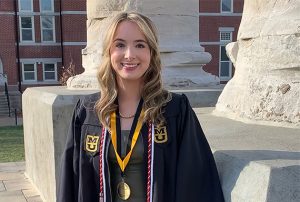
Dec. 8, 2023
Expanding expertise, Michelle Atkinson earns degree in electrical engineering
Michelle Atkinson decided to become an engineer after beginning her career as a registered nurse. She saw how electricity and technology were affecting the nursing field, and decided to go back to school to continue learning and asking questions about how technology is impacting the world.
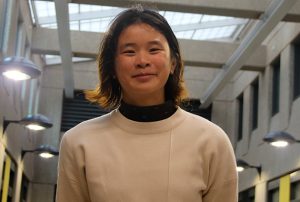
Dec. 8, 2023
Inspired by faculty, Sally Chen earns degree in biological engineering
When finalizing her college choice, Sally Chen combed through two university catalogs and noticed something different about Mizzou Engineering: the bioengineering electives were more robust and flexible. That, and the fact she's lived in Columbia since fifth grade, sealed her decision.
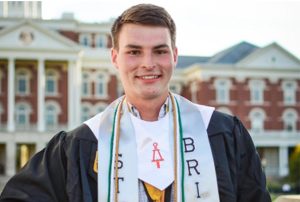
Dec. 8, 2023
Equipped with leadership skills, Jacob Dodge earns degree in civil engineering
Jacob Dodge grew up in a household full of Tiger Pride. Both his mom and older brother are Mizzou alumni, but he didn't decide to become a Tiger until visiting Mizzou Engineering and learning about the traditions, opportunities and facilities at the College.

Dec. 8, 2023
Beginning a new chapter: Blake Miller earns degree in information technology
Blake Miller, originally from Pana, Illinois, chose to come to Mizzou because of its rich history and diverse opportunities that aligned perfectly with his academic and personal goals. He saw the growth of digital technology and its increasing significance to everyday life and realized that expertise in information technology is not just a career choice, but is a necessary skill set in the modern world.
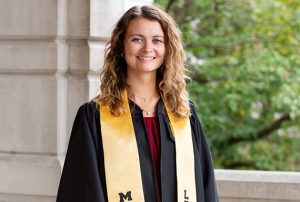
Dec. 8, 2023
Experiences pay off as Abigail Penfield earns mechanical engineering degree
Abigail Penfield has spent her time at Mizzou taking advantage of every opportunity she could find. She got involved in undergraduate research and numerous student organizations, including Mizzou Space Program, Mizzou Engineering Student Council, Society of Women Engineers, TEDxMU and Engineers' Club. Her undergraduate experiences have been out-of-this-world.
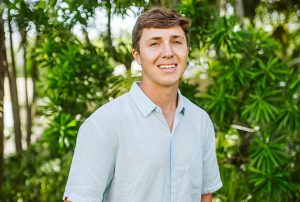
Dec. 8, 2023
Ready to forge ahead, Jack Shultz earns degree in chemical engineering
At Mizzou, Jack Shultz has had the opportunity to explore a variety of academic interests including business and athletic training. He ultimately opted to combine his passion for math and chemistry and pursue a degree in chemical engineering.
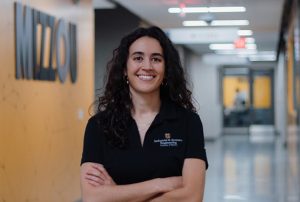
Dec. 8, 2023
Boundless opportunities: Frances Swayne earns industrial engineering degree
Frances Swayne followed her family members into STEM, choosing Mizzou because of its academic offerings and opportunities to meet a lot of students. Seeking adventure, she got involved in Engineers Without Borders. Wanting even more boundless opportunities, she opted to pursue a degree in industrial engineering—a flexible program that prepares students for a wide range of industries.
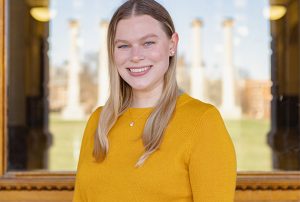
Dec. 8, 2023
Fascinated by her field, Mary Todd earns degree in biomedical engineering
Mary Todd comes from a family of Mizzou Tigers. But she didn't just follow in their footsteps. Todd says Mizzou was undoubtedly the right choice because in addition to liking the campus, student involvement opportunities and proximity to home, she couldn't picture herself anywhere else. Looking back, she still can't.